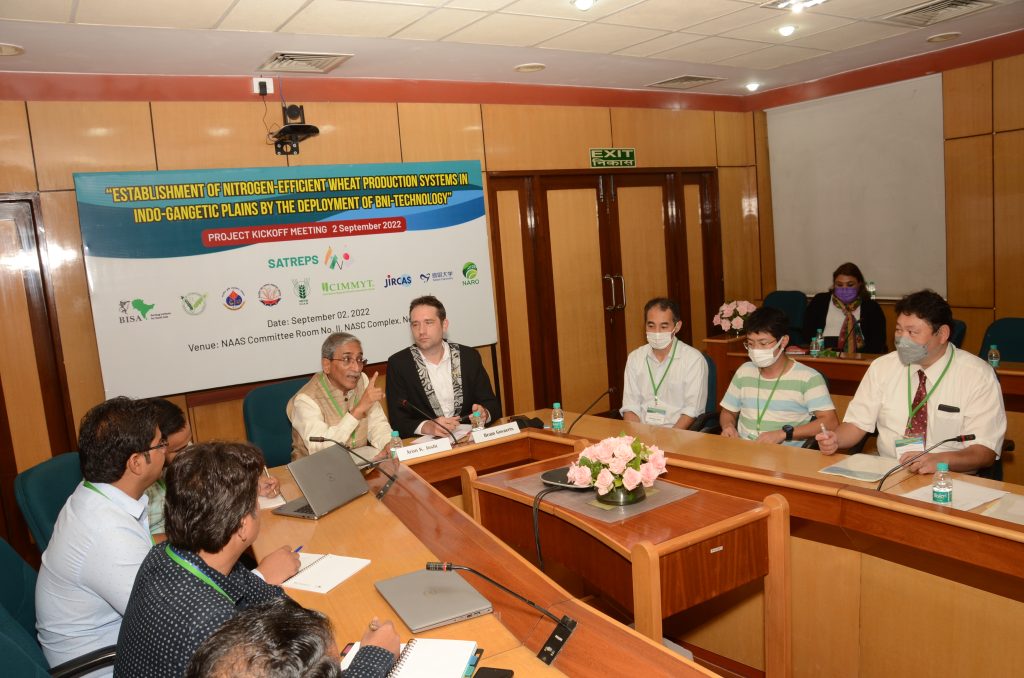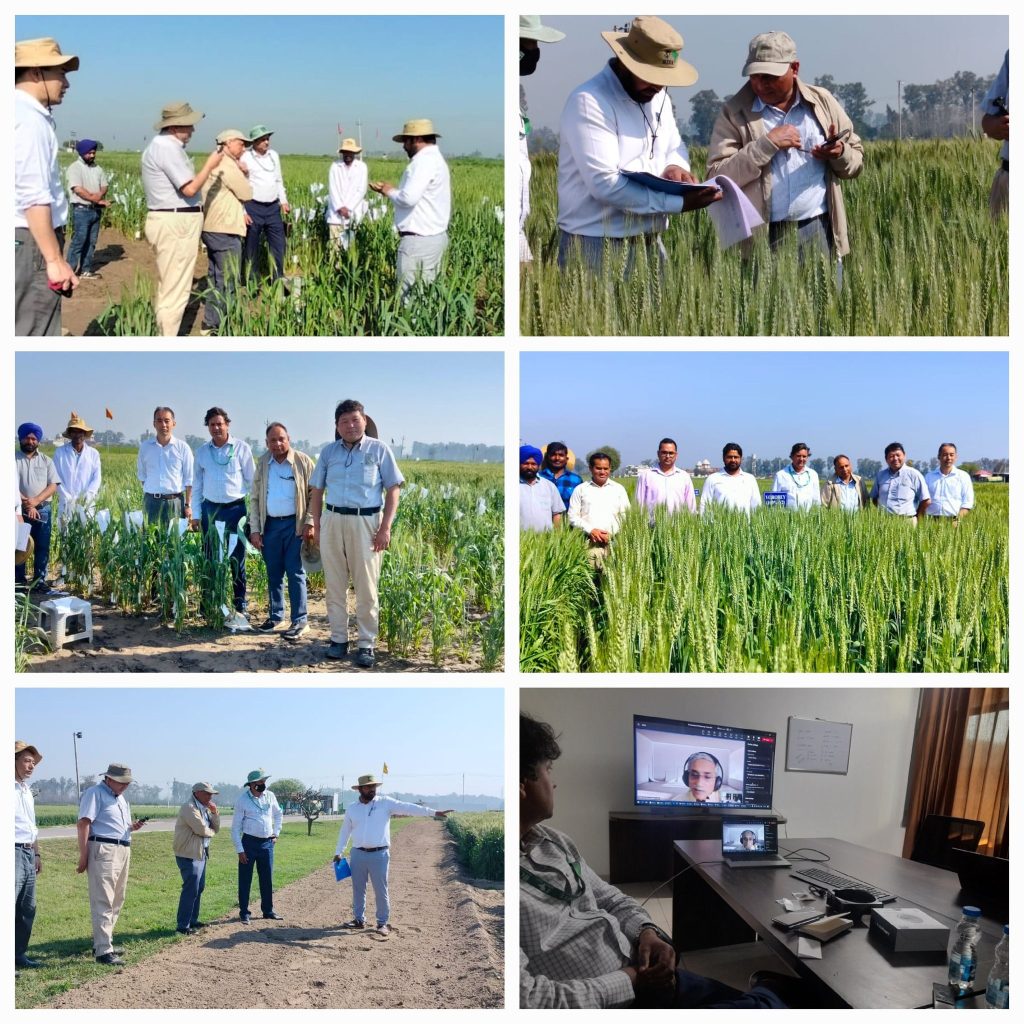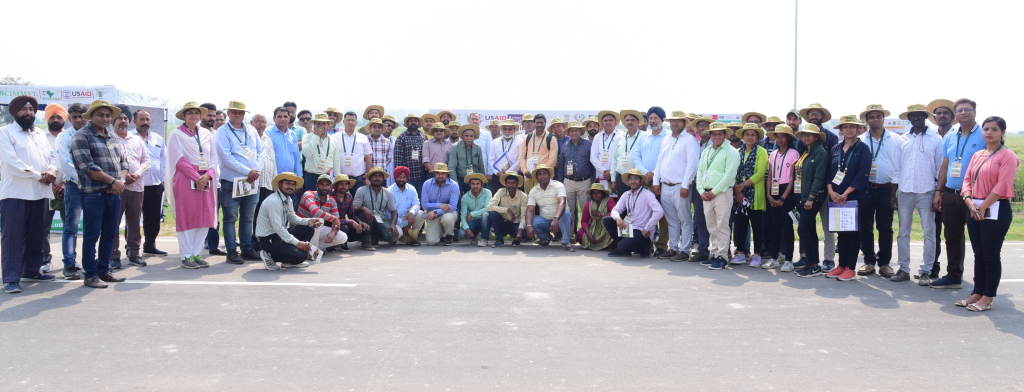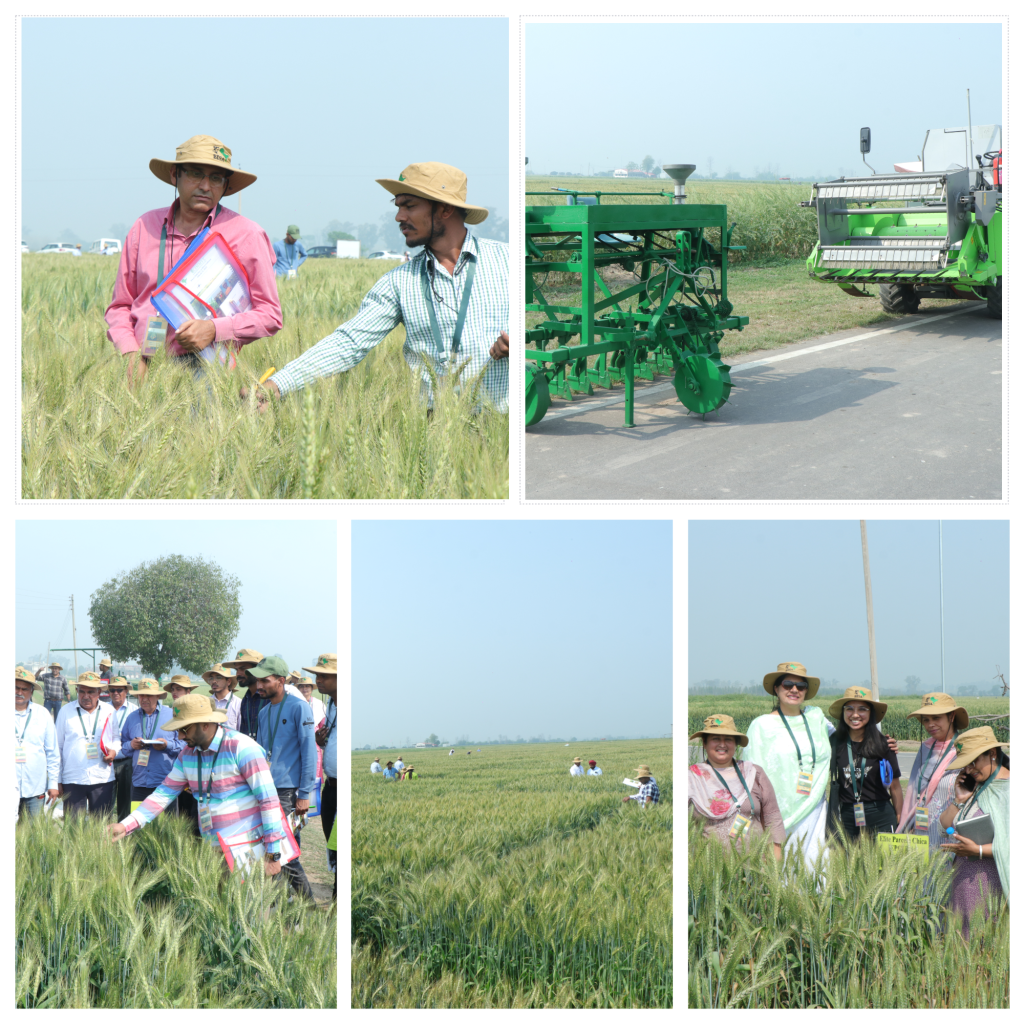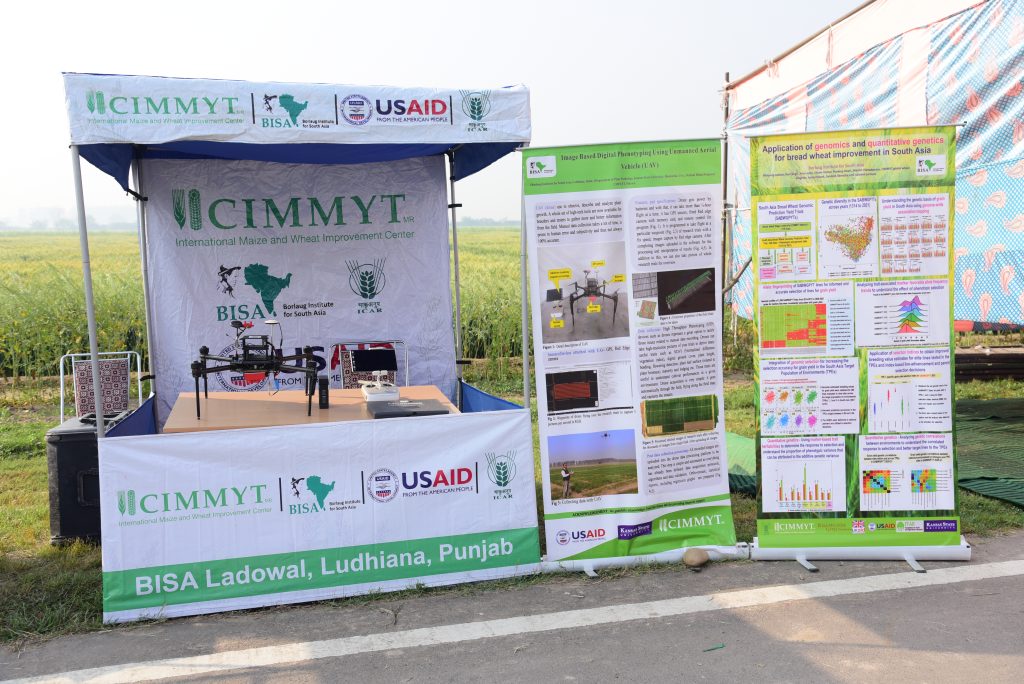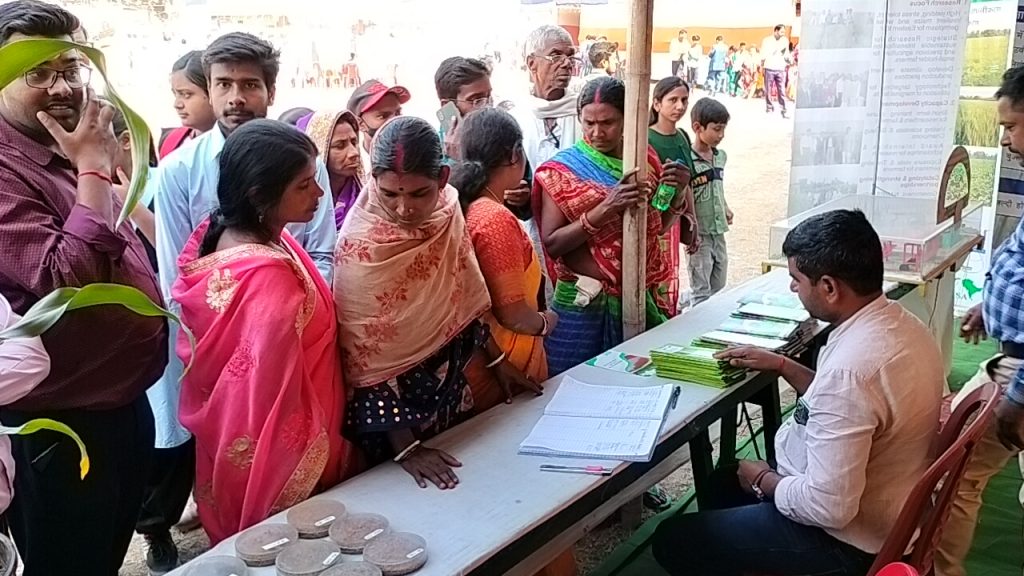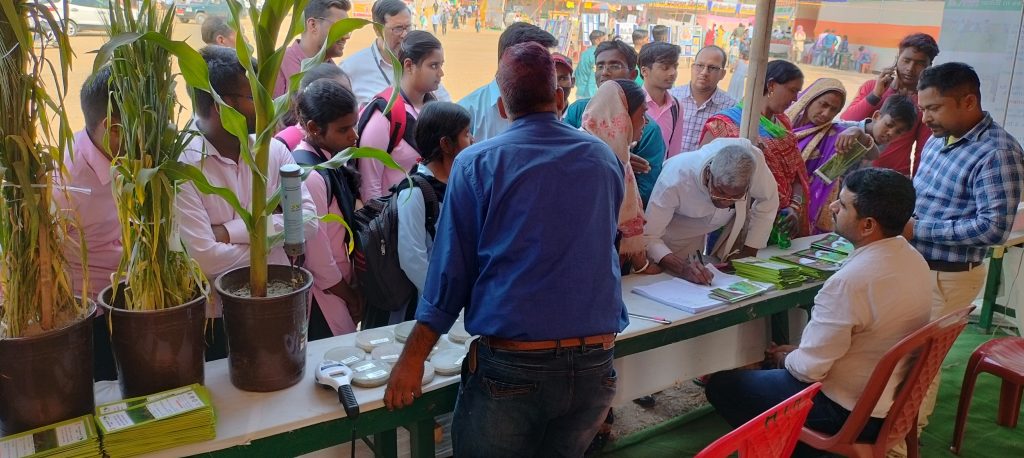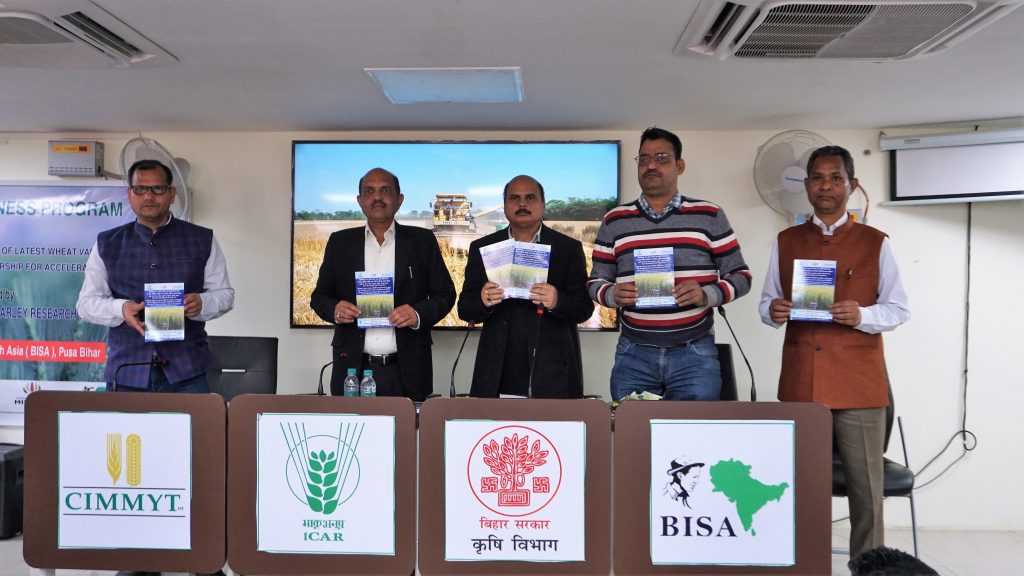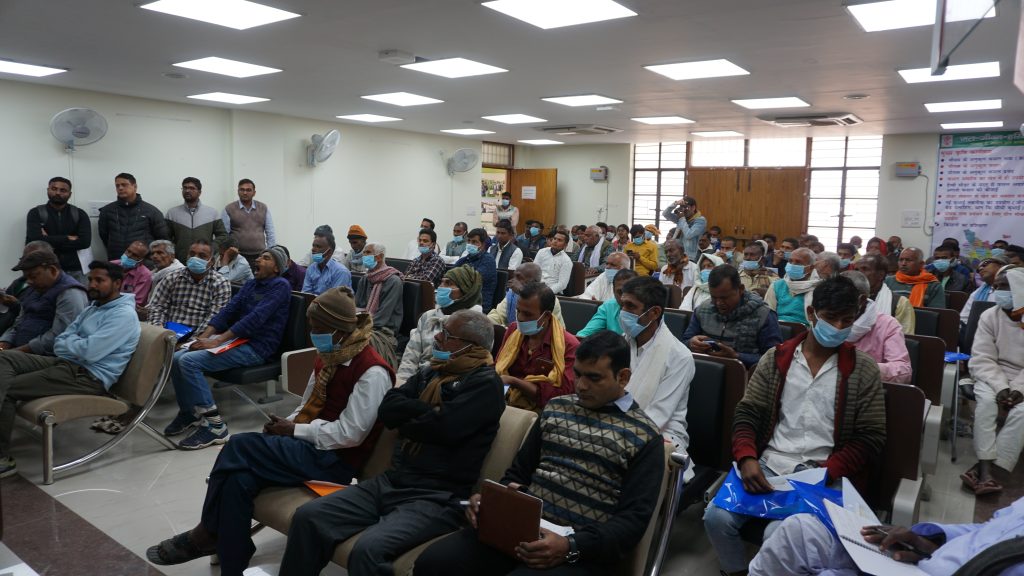JIRCAS team visits BNI-wheat Trials at BISA Farms
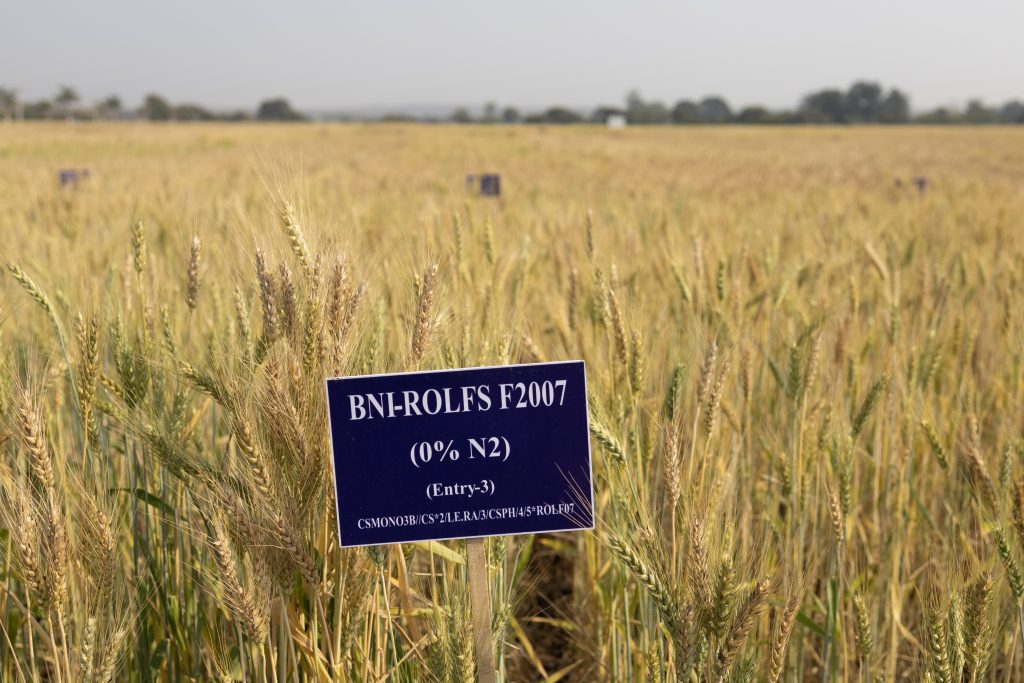
By Richa Sharma Puri & Uttam kumar
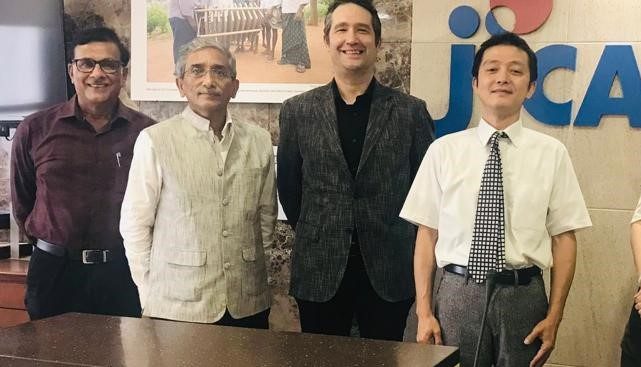
A new partnership between the Japan International Cooperation Agency (JICA), the Indian Council of Agricultural Research (ICAR), and CIMMYT will seek to improve nitrogen (N) retention and reduce greenhouse gas, nitrous oxide (N2O) emissions in the wheat growing zone, focusing initially on Indo-Gangetic plains of India by developing new wheat varieties with the Biological Nitrification Inhibition (BNI) trait.
The new initiative called “Project for the Establishment of Nitrogen-Efficient Wheat Production Systems in Indo-Gangetic Plains by the Development of BNI Technology” was announced on April 11, 2022, when CIMMYT’s director general, Bram Govaerts, signed the corresponding agreement with Mitsunori Saito, JICA’s chief representative in India.
Thus, the research trials with BNI-trait are being carried out at CIMMYT-BISA research farms in India (Ludhiana, Jabalpur & Samastipur) and several ICAR institutions (IIWBR and CSSRI in Karnal, IARI at New Delhi). Recently, the JIRCAS-BNI team visited the BNI – wheat trials planted at CIMMYT- BISA research farms in Ludhiana (Punjab) and Jabalpur (Madhya Pradesh) where several elite wheat varieties carrying BNI – trait are undergoing field evaluations. These trials will help determine the BNI-trait expression and its impact on overall productivity. The team from JIRCAS observed some visible differences where BNI lines were performing better than the non-BNI lines under different nitrogen levels.
BNI wheat and its impact on the environment
In modern agriculture, the use of nitrogen-based fertilizers is huge. Around 70% of fertilizer applied in the field is not absorbed by the crops, thus making our farms a source of pollution. Not only this, but nitrous oxide (N2O) emissions add to the existing greenhouse effect way more than carbon dioxide. This release of Nitrogen is directly related to a nitrification process in the soil. Therefore, it’s critical to suppress the nitrification rate of agricultural soil. To combat this situation, a paper titled “Enlisting wild grass genes to combat nitrification in wheat farming: A nature-based solution” was published in Proceedings of the National Academy of Sciences of the United States of America (PNAS). It was co-authored by JIRCAS, CIMMYT, the University of the Basque Country, and the College of Bioresource Sciences, Nihon University. The paper reported the successful development of the world’s first BNI-enabled wheat – high on productivity and low on nitrogen fertilizer – mitigating global warming. This BNI wheat uses nitrogen more efficiently than conventional wheat varieties. The successful implementation of BNI-Wheat Project has huge potential not only to save the cost of fertilizer but help in reducing the greenhouse gas emission from wheat crops. The joint efforts by JIRCAS and BISA in developing this next-generation wheat may revolutionize wheat production systems across the globe.

